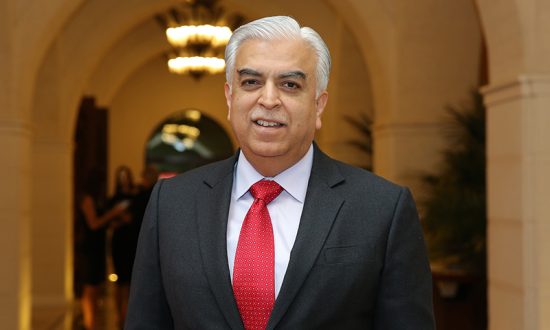Coming from a humble, middle-class, extremely value-based background, Niranjan Gidwani is the Consultant Director, Member UAE Superbrands Council and Former CEO of Eros Group Dubai. Mr. Gidwani is known for his vision and his ability and expertise to build regional groups and organisations into brands. He is a degree holder in Mechanical Engineering and an MBA from the Symbiosis Institute of Management, Pune, India. He has also attended several top management courses at institutions such as the Indian Institute of Management Ahmedabad, the Seven Habits program under Dr Steven Covey and several others across the world. Mr. Gidwani has over 38 years of hard-core senior management experience with a strong exposure to handling international business. Out of these 38 years, he has had working stints in India, Hong Kong, Germany, Singapore and Dubai. Dubai has had the longest stint of 28 years.
There’s a famous quote by my favorite management Guru and author, Peter Drucker. It says “Culture eats strategy for breakfast”. Which actually means that strategy is extremely, critically important, but without a strong culture, even the best-laid strategies can backfire.
Ask any senior head or owner of an organization what are the key areas they are focused on, and the most likely answers would be financial management, super customer experience, business development, valuations etc. All of these are hugely critical areas to focus on, but one key ingredient often gets overlooked in any meaningful discussions: Culture.
The last thing any organization wants, no matter what level of growth they are at, is to start losing great talent to a culture which is either not well-defined or too superficial and political.
Aside from retention, culture can be a powerful competitive advantage because it is built over a long period of time and difficult to replicate easily. With the advent of technology, handicap levels have dropped across many industries, and the playing field is becoming flatter. Hence, any competitor who has the funding can, over time, replicate everything else. Yet, the unestablished norms in any company that is driven by a deep-rooted positive culture would be difficult to quickly replicate.
Global research has indicated that when any organization crosses a critical mass of about 100 employees, cultural issues get more complicated if not addressed determinedly and quickly.
One thing is undeniable: quantifying employee sentiment can provide every organization with the tools it needs to ensure culture preservation as it scales up its size and business volumes.
The role of a CEO, or head of any business or division is extremely crucial in two key areas – driving for performance, growth, success, and at the same time also driving the right kind of culture. While the very same individuals give so much emphasis to create the right kind of culture at home and in the family, why is the same kind of dedication and passion lacking in the workplace. Why the double standards.
In today’s world of rapidly scaling-up businesses, startups, major geopolitical disruptions, funding winters, perhaps a head of a company or a business also needs a coach who can play the role of the third eye. A small difference can be the defining criteria between a good player and a great player. And that’s where perhaps coaching a coach can come in extremely handy.
A driver and a mechanic cannot be exactly the same. A doctor and a nurse cannot function exactly the same. A good jockey and a trainer cannot be the same. A lawyer and a judge cannot be the same. We all need someone outside of us to have an objective view of what we do and what we don’t.
Inspite of all the advancement in technology, a good player cannot watch his own game objectively. This is precisely the reason why auditors, boards of directors, coaches for champions exist. Someone outside of us needs to observe and reveal the real and, more importantly, improved version of us to ourselves.
The beauty of a good coach is that he or she does not have to be better than us, but instead should be a great observer and reader, besides consistently walking the talk. He or she may not be able to achieve what the person he is coaching may be able to achieve. Yet the commitment lies in making the one he is coaching become a super achiever. That is the reason why so many good teachers and professors create global successes while continuing to keep doing their good work for a lifetime.
It is a proven fact. Any institution, or organization which focuses on building a great culture can hold on to their talent a little better, a little longer even if their packages were to be slightly lower than the market average. But a poor culture with higher packages would probably retain talent only till the talent gets another alternative.
A great cultural coach is one who consistently walks the talk while keeping the student in him always alive. And since humans are the only creation capable of leaving a great legacy which could live beyond their lifetime, is it not then a responsibility for coaches and leaders to leave a good, capable bench strength as a legacy?
Surely current times may be appropriate and best for increased coaching of the coach and the culture.




